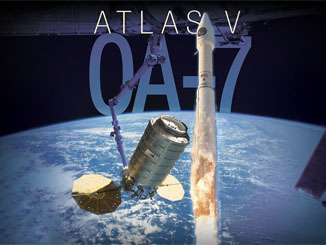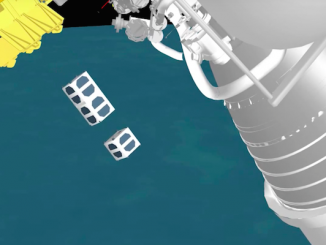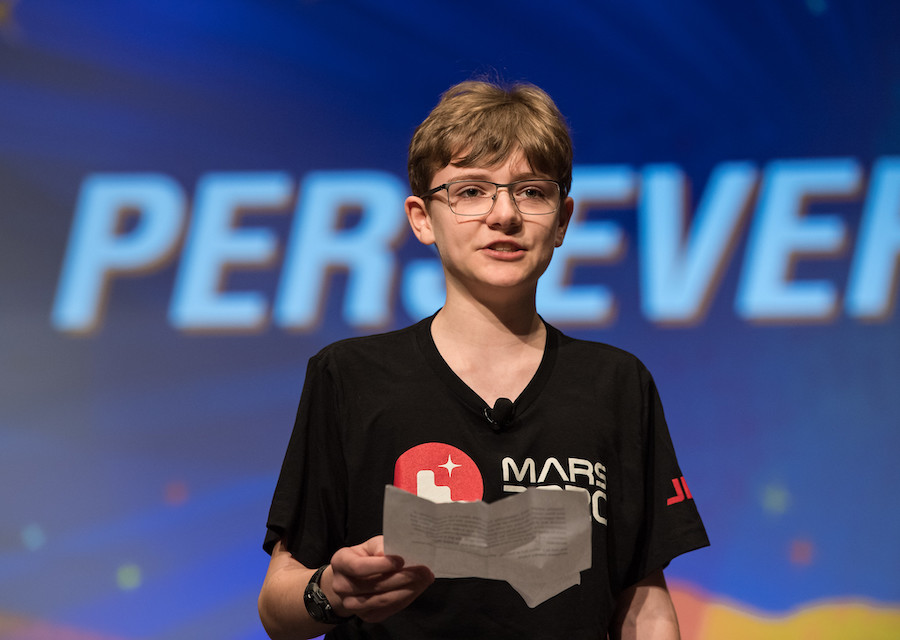
Twenty-eight thousand students across the United States submitted essays and proposed names for NASA’s newest Mars rover and on Thursday, the agency announced the winner: Perseverance, submitted by Virginia seventh-grader Alexander Mather.
The $2 billion Perseverance rover, built at the Jet Propulsion Laboratory in Pasadena, Calif., is undergoing final processing at the Kennedy Space Center in Florida before launch in July on a seven-month voyage to the red planet.
Following in the tire tracks of NASA’s Curiosity rover, which has shown Mars once hosted a habitable environment, Perseverance will search for signs of past microbial life and collect rock and soil samples that NASA and the European Space Agency hope to eventually return to Earth for detailed laboratory analysis.
Up until Thursday, NASA’s newest rover was known simply as Mars 2020. But last August, NASA opened a nationwide “Name the Rover” contest open to K-12 school students. Some 28,000 entries were submitted and 4,700 volunteer judges narrowed the list down to 155.
In January, nine finalists were announced: Perseverance, Clarity, Courage, Endurance, Fortitude, Ingenuity, Promise, Tenacity and Vision. The public then cast 770,000 votes and Wednesday night, Mather found out his entry had won.
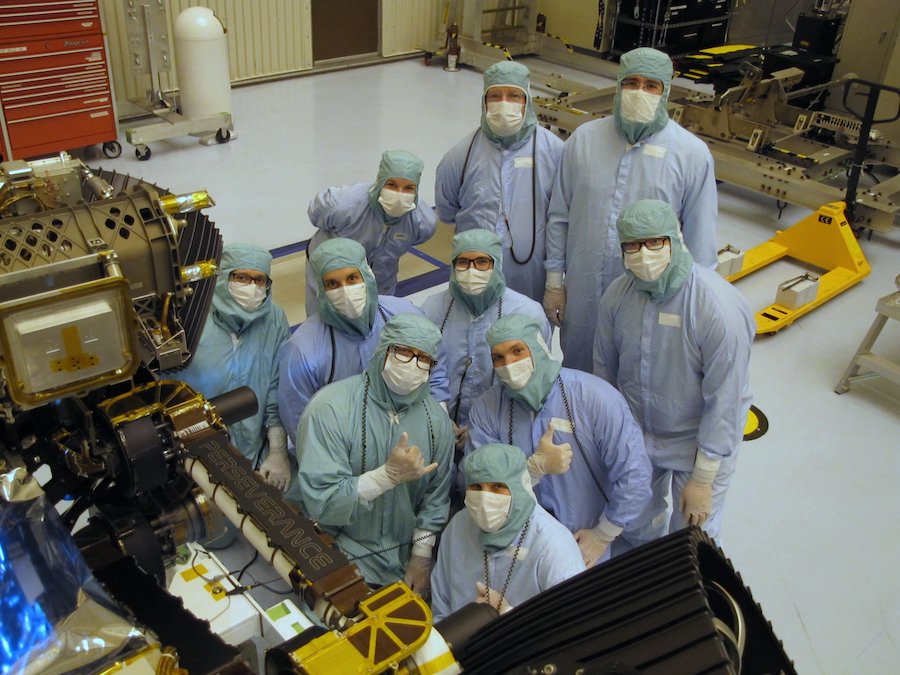
In a NASA television broadcast Thursday, he read his essay to classmates at Lake Braddock Secondary School in Burke, Virginia. He came up with Perseverance while considering earlier Mars robots like Curiosity, the Spirit, Opportunity and Pathfinder/Sojourner rovers that preceded it and the Insight lander currently at work on Mars.
“Curiosity, Insight, Spirit, Opportunity,” he read. “If you think about it, all of these names of past Mars rovers are qualities we possess as humans. We’re always curious and seek opportunity. We have the spirit and insight to explore the moon, Mars and beyond.
“But if rovers are to be the qualities of us as a race, we miss the most important thing: Perseverance. We as humans evolved as creatures who could learn to adapt to any situation, no matter how harsh. We are a species of explorers, and we will meet many setbacks on the way to Mars. However, we can persevere. We, not as a nation, but as humans will not give up. The human race will always persevere into the future.”
He said he became interested in space when his parents sent him to Space Camp near the Marshall Space Flight Center in Huntsville, Ala. Driving up to the facility, a huge Saturn 5 moon rocket came into view.
“As you’re driving up to the campus, there’s this building that is blocking the view of … the Saturn 5,” he said. “And as you drive up to the campus, you see the capsule of the Saturn 5 slowly rise above the building, and 11-year-old me saw that and lost his mind.
“I immediately knew that space is something I was doing for the rest of my life.”
After high school, “I want to go to college, get a degree in some form of engineering or science, space engineering and astronautics sound good right now. Then after that, go work at NASA as an engineer.”
As the “Name the Rover” contest winner, Mather and his family will be flown to Cape Canaveral as guests of NASA to view the launch of Perseverance atop an Atlas 5 rocket. The planetary launch window opens on July 17.
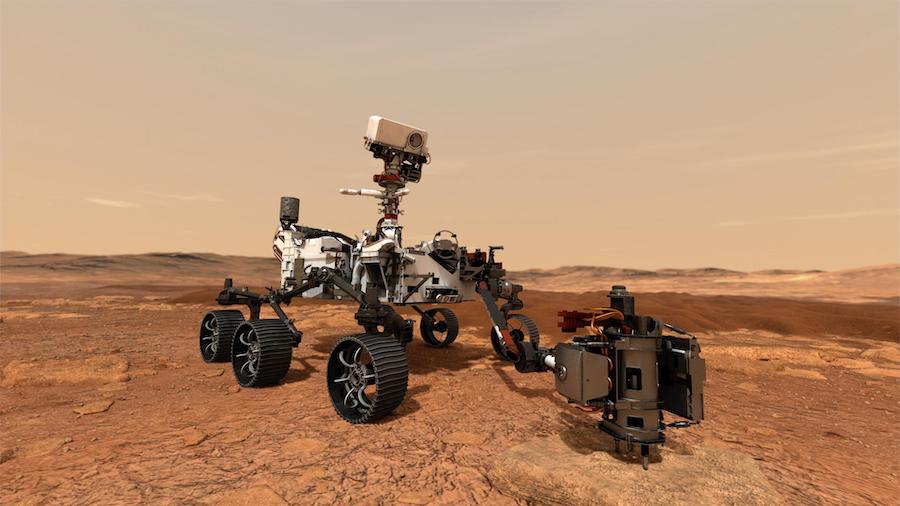
If all goes well, the rover will land Feb. 18, 2021, on or near an ancient river delta where water once flowed into a 30-mile-wide, 1,600-foot-deep crater to search for signs of ancient microbial life and to continue ongoing studies of the planet’s history and habitability.
Equipped with 28 cameras, a suite of seven state-of-the-art instruments and a robot arm, Perseverance will collect rock and soil samples, seal them in small containers and cache them for collection by a future NASA rover.
Assuming the follow-on mission is funded, the lander that brings the NASA “fetch” rover to the surface would feature a small rocket to boost the collected samples into orbit. Yet another spacecraft, built by the European Space Agency, then would scoop up the sample container and bring it back to Earth.
But it all starts with Perseverance. A name plate has been mounted on the rover’s robot arm and all 155 semifinalist names and essays, etched on a microchip, will be sent to Mars as well.
“Alex’s entry captured the spirit of exploration,” NASA science chief Thomas Zurbuchen said in a statement. “Like every exploration mission before, our rover is going to face challenges, and it’s going to make amazing discoveries.”


